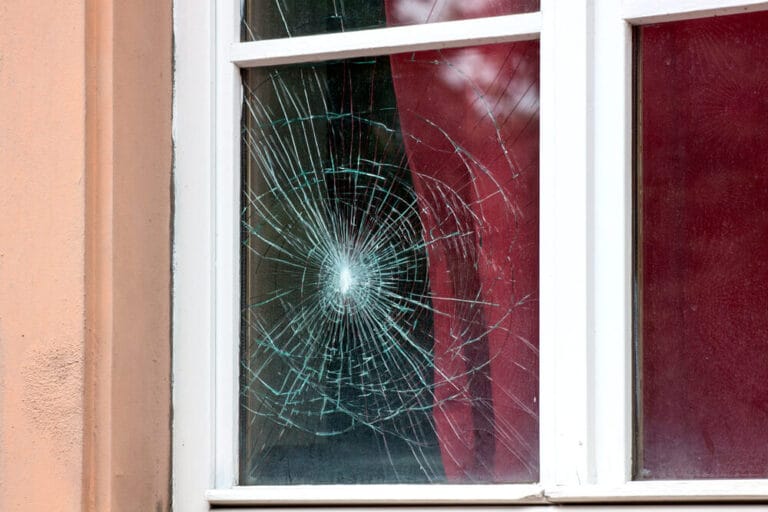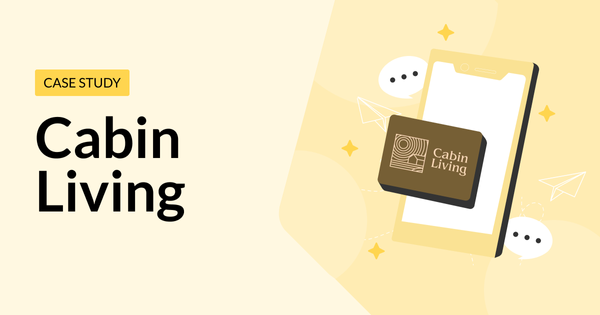Airbnb vs. Renting: Which Gives You the Best ROI?

The Airbnb vs. renting debate is one of the main discussion points among real estate investors and with very good reason. The vacation home rental market is very lucrative. In 2021 alone, worldwide revenue in the industry added up to $57.94 billion, and this is projected to increase to $96.85 billion in 2023.
According to VRM Intel, 45% of investment property buyers bought an investment property to generate an income through renting it out as opposed to flipping it. Though, considering that short-term vacation rentals do not offer the same regular income as a long-term rental property might, is the risk worth it?
Now the question is: which investment approach can yield the best income? In this article, we’ll help you identify the best rental property investment strategy for your business.
Airbnb vs. Renting: Rental Income
Airbnb is a third-party website that helps short-term rental homeowners connect to travelers. Hosts can list their properties on its platform and then rent them out on a short-term basis to guests. Airbnb does charge a service fee, but in exchange, it will market your Airbnb rental property and take care of the payments.
If you opt for traditional long-term renting, you will be making your property available to be rented out for a period of six months or longer. A long-term rental property will be a full-time responsibility to market and collect the monthly payments unless you choose to work with a property manager.
When comparing Airbnb vs. long-term rental properties, there are different aspects that may have a direct impact on your income. Also, both approaches have their own advantages and disadvantages.

1. Pricing
Traditional renters have to follow the lease agreement and may not change the pricing on the spot. This means that you will receive the same amount of rental income as stated in the rental agreement, ensuring a steady cash flow.
An Airbnb rental property allows you to be more flexible with your pricing. Short-term rental business owners can use different pricing strategies and adjust their pricing practically every day in response to different factors like the day of the week, demand, season, etc.
2. Upfront and ongoing expenses
An Airbnb rental may require higher upfront costs as the rental should be fully furnished and stocked. Ongoing expenses are also higher as you need to ensure that the property is always in perfect condition.
This means that some of the items you will need to replace and restock regularly. Also, if you will be working with a property management company, their fees will be higher if they need to manage short-term rentals.
If you go the route of traditional renting, you will not be that involved financially. Find the right tenant and he/she will take care of your property and garden. If there is an emergency, you will have to deal with it (but this will be an irregular occurrence). You will also have to take care of general property maintenance, but that is the responsibility that comes with owning any property.
The following are some examples of the expenses of traditional renting:
- Water
- Sewage
- Garden maintenance
- Trash removal
The following are some examples of expenses that an Airbnb host must pay on top of the expenses of traditional renting:
- High-quality furniture
- Decor
- Bedding
- Towels
- Kitchen utensils
- Appliances
- Some standard food items such as coffee, tea, sugar, etc.
- Wi-Fi
- Cable TV
- Cleaning fees for services
- Utilities
3. Market and Demand
Generally speaking, the short-term rental market is booming compared to long-term rentals. Coming out of the pandemic, travel is enjoying a fresh upward trend, leading to travelers booking more Airbnb properties. On the other hand, long-term rentals are experiencing the opposite. The many people who lost their jobs during the COVID-19 lockdowns are still trying to recover financially before entering into long-term leases.
However, it is important to remember that Airbnb rentals are susceptible to seasonality leading to lower occupancy rates and income during the low season. On the other hand, it’s easier for short-term rental hosts to make money during the high season due to higher guest turnover and increased prices.
Either way, demand for your property will not happen overnight. You first need to have received a few five-star reviews before you will receive more bookings. This means that when you are starting out, you might have to discount your prices to ensure that your property will be in demand.
Considering the Airbnb vs. traditional renting debate, managing your vacation rental effectively becomes crucial. Both approaches have their pros and cons, but effective management can make a significant difference in your success.
Enter iGMS. It’s designed to assist hosts with a comprehensive set of tools tailored specifically for vacation rentals. From automating guest communication to scheduling cleanings and optimizing pricing, iGMS streamlines management tasks, freeing up hosts to focus on maximizing rental income.
Airbnb vs. Renting: Legal Rules and Regulations
Regulations against short-term rental units are on the increase. What makes it more challenging is that short-term rental laws may vary from state to state. This means that you have to do your research diligently.
If your city does allow short-term rentals, you might have to apply for a permit. This means that you would have to pay extra fees. If you think to skip this step, think again as you could get fined. In some cases, you might even have to pay for legal action. You may also have to request permission from the HOA if your rental property is in an apartment building or gated community.
Short-term Rental and Traditional Rental Tax Considerations
Airbnb has different tax implications. In the US, you will have to pay federal and state income tax depending on your type of rental. If you rent out your property on Airbnb, you might have to pay occupancy tax as well.
Traditional rental income will also be taxed, but you will have more concessions. You will also be able to deduct more property-related expenses from your tax.
Irrespective of if you use Airbnb or traditional renting, it is best to reach out to a professional tax consultant.
Vacation Rental vs. Traditional Rental Property Insurance
The Airbnb Host Guarantee partially protects Airbnb hosts. However, it is not enough and each Airbnb host should have additional vacation rental insurance. Also, as you will be renting out to different guests throughout the year, there is a greater risk that your property could suffer damages. As a result, your insurance costs will be higher.
That being said, property owners who opt for traditional renting will also most likely have a commercial insurance policy or some other form of landlord insurance.
Airbnb vs. Renting: Pros and Cons

Airbnb Pros
1. More Potential to Maximize Your Income
As you will be renting out your property at a higher nightly rate, you can make more money on the condition that you have a good occupancy rate. With Airbnb, you can also sell extra services to your Airbnb guests which can help you to generate extra money on top of the rental income.
2. More Flexibility in Terms of Pricing
Hosts have the opportunity to adjust their pricing every day in response to a wide variety of factors. You can, for example, offer discounts for longer bookings or midweek stays.
The opposite is also true. For weekend bookings, you can charge more. This means that you can have two (or more) sets of rates to respond to the current demand.
3. No Lease Agreement in Place
There is no need for a lease agreement. You have your house rules and Airbnb also has its set of rules to help protect hosts. This means that if a guest breaks your house rules, you can reach out to Airbnb immediately instead of having to enter a long-drawn-out legal matter. You can also opt for a vacation rental agreement for added protection.
4. Protection for Hosts (Airbnb Host Guarantee)
The Airbnb Host Guarantee is a great benefit as it offers protection of up to $1 million. Airbnb’s review system also offers hosts some form of protection. By taking the time to read the reviews that guests have received, you can get a better idea of what you can expect.
Airbnb Cons
1. Damages
The potential for damages is higher than traditional renting. While most bookings do not result in damages, some guests specifically book via Airbnb with the plan of using your property as their party venue.
As a result, many hosts stress more about whether their property will get damaged when renting it out via Airbnb vs. renting. However, as you will be renting your property for shorter periods of time, you will have more opportunities to check on the state of your property.

2. Higher Expenses
After each booking, you will have to clean your property, restock certain items, and possibly replace items that were damaged or are no longer in working condition.
3. Irregular Income
Don’t bargain that you will be able to rent out your property every single day of the year. In fact, you will prefer it that way (hosting so many different guests can take its emotional toll). One month you might be completely booked, while the next month receive only one booking.
Usually, your income will be seasonal. Your location, attractions, and events will play a major role in your occupancy.
Also, some cities restrict the number of days that you may rent out your Airbnb. So, it could be that you will be forced to block off some days.
4. More Hassle and Time Required
To be a successful Airbnb host, you will need to market your property. This will require that you take high-quality photos and change them often to fit the season, write captivating property descriptions, and write reviews for guests.
You also have the increased pressure of ensuring your property is completely ready for every guest and keeping the lines of communication open to provide a memorable guest experience. Considering the much higher turnover rate, this adds up to a lot more work. In short, it is much more than simply being a landlord!

Renting Pros
1. Regular Income
The major pro of traditional renting is that you are assured your property will be occupied for a longer period of time. This means that you are certain of how much rental income you will be paid at the end of the month.
2. Lower Guest Turnover
Lower guest turnover translates to less work. The time you need to spend cleaning or maintaining your property will be significantly less.
Renting Cons
1. Less Flexibility
Not only do you have less flexibility with regard to your pricing, but you also do not have the option to make your property unavailable all of a sudden. This means that with traditional renting, you can’t rent out your property on a “part-time” basis. For example, with Airbnb, you can rent out your property only over weekends, but with traditional renting, this is not the case.
2. Less Potential to Maximize Your Income
You also have to check up on your long-term tenants to ensure that they pay the monthly rent on time. Even if only one month’s payment is missed, it can have a huge impact on your income. Depending on your location and local rental laws, it may also be difficult to find sufficient grounds for the eviction of a tenant.
Additionally, if they disappear, it could take a while to find a new tenant. On the other hand, Airbnb requires that guests pay the amount in advance.
3. Being Bound by a Lease Agreement

You and your guest should sign a long-term lease agreement before the rental period starts. This means that you may not change the price to adapt to demand or introduce new rules before the rental period has ended.
Airbnb vs. Renting Factors to Take Into Account
When deciding between traditional renting vs. Airbnb, be sure to take into account the following factors:
1. Your Property’s Location
If you opt for short-term rentals, you will only be able to enjoy high occupancy rates if your property boasts a great location. What makes it popular? It’s simple, there must be a reason for people wanting to visit your location.
Alternatively, if it is not in a major city or a popular vacation destination, your property must offer something unique.

2. Local Laws and Regulations
In some cities with very strict short-term rental ordinances, traditional renting will be the wiser option. You also need to research if there are any other extra requirements such as permits or restrictions on the number of nights. These might sound insignificant, but it can reduce your rental income potential.
As a matter of fact, in some areas, short-term leases are entirely prohibited. So, you might not even have the Airbnb vs. renting option.
3. The Maximum Bottom Line You Could Possibly Earn
Overall, Airbnb yields a higher nightly rate than traditional renting. Some hosts have even reported that they are able to triple the amount they would have made with traditional renting. However, that only applies to an Airbnb that has a high occupancy rate.

Final Thoughts
When it comes to Airbnb vs. renting, there is no clear-cut winner. Airbnb can generate higher rental income. Though, this does come at a cost. Hosts need to ensure that their investment property boasts a great location, which might mean more upfront costs.
Even with beachfront property, you’ll only be able to generate more revenue if you go the extra mile. This means that you need to market your property, ensure that you receive enough five-star reviews, and implement an effective pricing strategy. Without the willingness to put in the extra work and remain patient while you grow your reputation (which can take a long time), traditional renting will be the better rental strategy for you.
Read more

Airbnb Regulations by State: A Guide for US Hosts
Airbnb Regulations by State A Guide for US Hosts0:00/1947.0609791× Vacation rental regulations are seen as one of the biggest hurdles for short-term rental hosts and investors. Licensing requirements, zoning restrictions, and tax rules vary widely from state to state, and on the surface, they can seem like

Unlocking Success with Airbnb Virtual Assistant Jobs: A Guide for Hosts!
Explore the rise of Airbnb virtual assistants, current rental trends, and how iGMS can elevate your hosting game. Unlock success in the short-term rental industry! Unlocking Success with Airbnb Virtual Assistant Jobs A Guide for Hosts0:00/641.3761× The rise of short-term and vacation rentals, especially on platforms like

Airbnb Travel Insurance: Is it Better Than Standard Travel Policies?
Airbnb Travel Insurance A Comprehensive Guide for Short Term Rental Hosts and Property Managers0:00/773.5441× Airbnb offers insurance coverage for both guests booking accommodations and hosts. But how does Airbnb’s Guest Travel Insurance actually work? How is it different from regular travel insurance you can buy from

Scaling the Cabin Dream: How Cabin Living Transformed Its Rental Operations with iGMS
From Local Listings to Nationwide Reach Cabin Living began in 2017 with a bold mission: to change how holiday homes are rented in Norway—making the experience seamless for both owners and guests. What started with one property in Sjusjøen and a partnership with trail runner Johannes Haukaassveen quickly expanded


